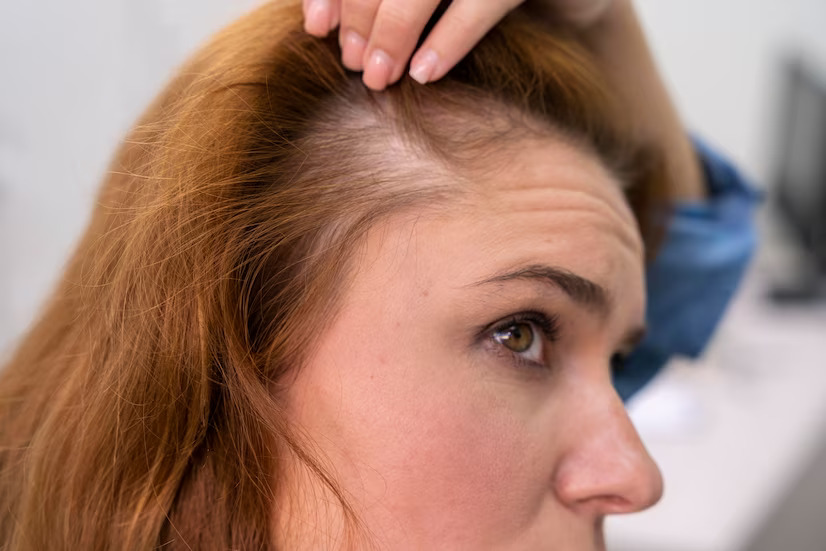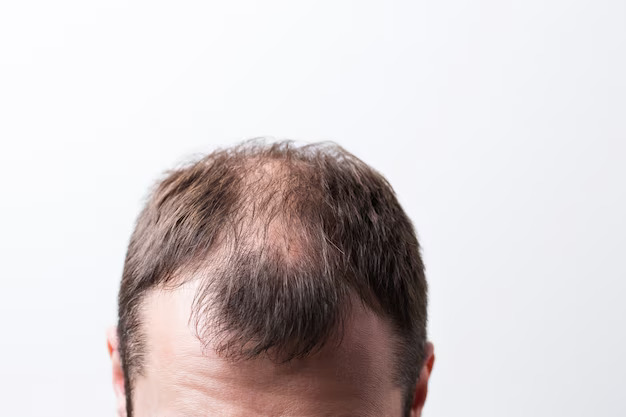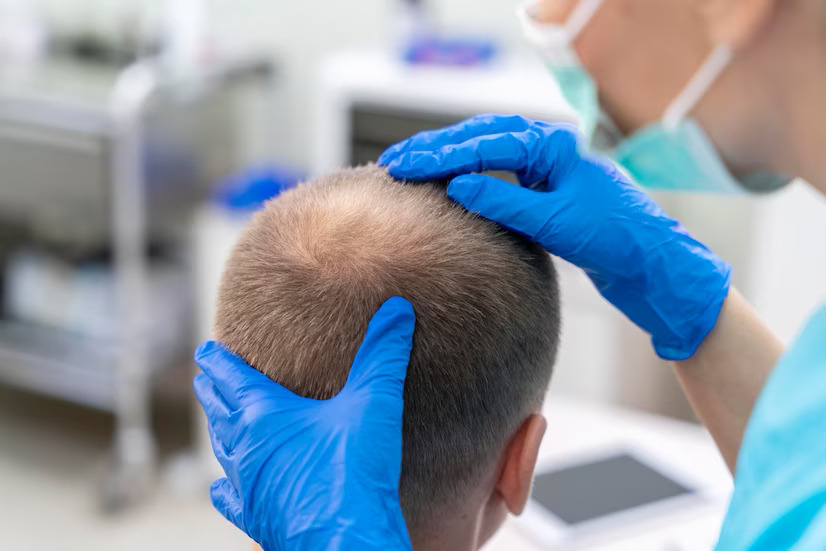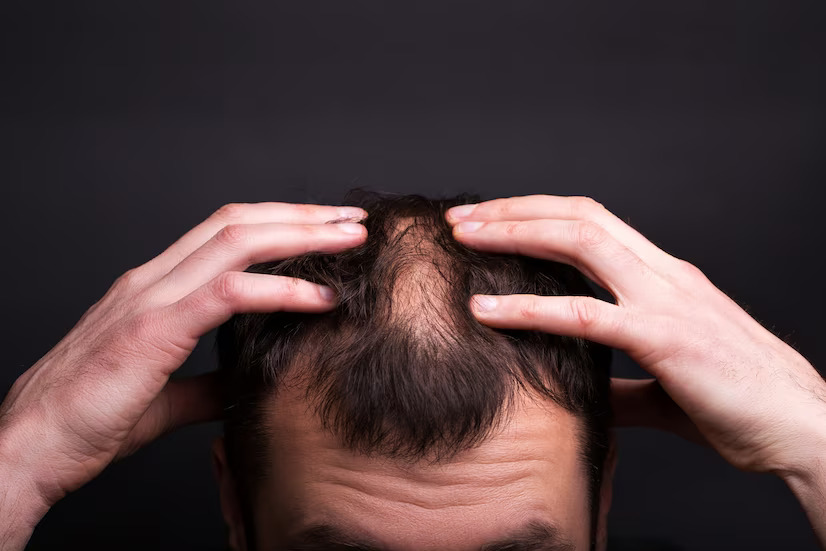- About Us
- Treatments
Skin Treatments
MenuMenuHair Treatments
MenuBody Treatments
Menu - Procedures
Aesthetics
MenuCosmetic Surgery
Menu - Training
- Products
- Gallery
- Contact Us
Alopecia Areata (AA) is a dermatological autoimmune disease that causes hair loss. The term “alopecia” refers to baldness, and “areata” indicates a patchy type of hair loss. It is a chronic inflammatory condition that affects the hair follicles, leading to patchy hair loss primarily on the scalp but also on other parts of the body. In most cases, small, round patches the size of a quarter appear on the scalp, leaving behind bare areas. Although hair loss can be extensive and unpredictable, it is essential to note that AA is not contagious.
AA can affect individuals of all ages, but it is commonly seen in adolescence or early adulthood. Hair loss can be temporary or permanent and may involve either the scalp or the whole body. Additionally, some affected individuals may experience pitted fingers or toenails.
While AA is not a severe medical condition, it can cause anxiety among those affected. For a better understanding of the symptoms, causes, and treatment of Alopecia Areata, consult Dr. Samatha, the best dermatologist at Dr. Samatha Clinic and Wellness Centre in Hyderabad.

There are different types of Alopecia Areata, including:

In Alopecia Areata, the hair follicles are primarily affected. Normally, the immune system protects the body from foreign invaders like bacteria and viruses by recognizing and attacking them. However, in autoimmune disorders, the immune system mistakenly attacks the body’s own tissues. In Alopecia Areata, for unknown reasons, the immune system targets and attacks the hair follicles, disrupting normal hair formation and leading to hair loss. Genetic factors also play a role in Alopecia Areata, as many genes are essential for the proper functioning of the immune system.
You are more likely to have Alopecia Areata if you have conditions like asthma, Down syndrome, pernicious anemia, seasonal allergies, thyroid disease, vitiligo, or if you are undergoing treatment with the drug nivolumab.


The main symptom of Alopecia Areata is hair loss, which occurs in round or oval patches on the scalp, leaving behind coin-sized bald areas. Other parts of the body, such as the beard area in men or the eyebrows and eyelashes, can also be affected. Hair loss can be sudden, developing in a few days or over several weeks. During colder weather, more hair loss may be observed. Some affected individuals may notice short hairs around the patches, which are narrower at the base than the tip (exclamation mark hair). In severe cases, hair may break before reaching the skin surface (cadaver hair).
Alopecia Areata can also affect the fingernails and toenails, causing ridges, pits, thinning, splitting, white spots, and lines on the nails.
Medical Treatment:
– Topical Agents: Minoxidil and anthralin are medications applied to the scalp to stimulate hair growth. Topical steroids may also be used to decrease inflammation in the hair follicles.
– Injections: Steroid injections into the scalp can stop the immune system from attacking the hair follicles and promote hair regrowth.
– Oral Treatment: Oral steroids and oral immunosuppressants may be prescribed for extensive Alopecia Areata, but they have potential side effects.
Laser and Light Therapy:
Light therapy, also known as photochemotherapy and laser treatment deliver specific wavelengths of ultraviolet light to promote new hair growth and is considered safe and effective.
Natural/Alternative Treatment:
Some experimental treatments, such as acupuncture, aromatherapy, vitamins and supplements, essential oils, and probiotics, are not supported by scientific evidence and should be used with caution.
Other management options:
The effectiveness of each treatment varies from person to person, and regrowth may be temporary or not occur at all. Some individuals may need to try multiple treatments to find what works best for them.
While Alopecia Areata is not life-threatening, it can lead to anxiety, stress, and low self-esteem. Support groups and counseling can help individuals cope with the psychological effects of the condition.
Although there is no cure for Alopecia Areata, consulting with a dermatologist like Dr. Samatha at Dr. Samatha Clinic and Wellness Centre in Hyderabad can help control symptoms and provide guidance on the right treatment options for each individual.

Book An Appointment